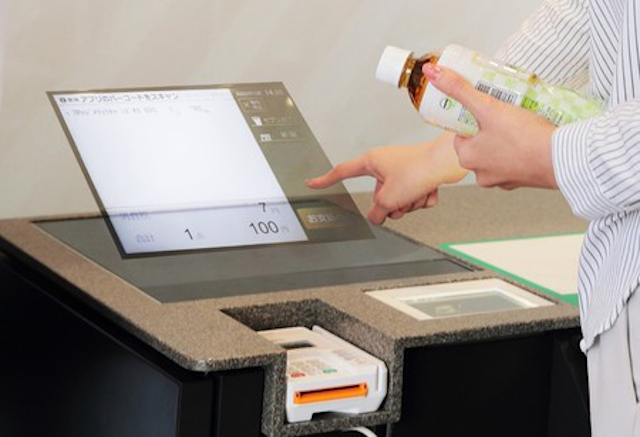
Contactless self-checkouts make Japan’s konbini even more konbinient.
Japanese convenience stores are known for being convenient, but now they’re set to become even more so, thanks to a new trial of non-contact self-checkouts coming to select 7-Eleven stores next month.
Dubbed the “Digi POS“, the new registers are said to feature the “world’s first” non-contact/aerial display technology for POS cash registers. On 28 January, 7-Eleven shared a first look at the new hologram registers with a video showing how they work, which you can check out below:
Aerial displays are still relatively rare, and are mainly used for reception services in hotels and offices, or as digital signage. However, according to Toshiba Tec, who helmed the six-company project, this is the first time the technology has been used in a POS system.
As you can see from the video above, the hologram cash registers are incredibly easy to use. All you have to do is scan the product you want to buy…
▼ …and then the touch-panel register will pop up, visible from the user’s angle but invisible to others.
You can then continue to scan other products or select some additional items like a hot or cold beverage from the “Seven Cafe” section, which is the self-service beverage machine at the front counter.
▼ In this demonstration, the user selects a regular-sized hot coffee and a large-sized hot coffee.
After pressing the “OK” button, the user is taken to the confirmation screen to confirm the order before pressing the orange “proceed to payment” button.
Then all that’s left to do is choose a cashless payment method, which will then require you to scan your card or smartphone. And that’s it — purchase complete!
The floating touch panel registers were developed as a joint project between six different companies: Toshiba Tec, which created the POS payment system and is responsible for its installation and assembly in stores; 7-Eleven, who will equip its stores with the product and assist customers with its use while also verifying its effectiveness; Asukanet Development, which manufactures and sells plates for aerial displays; Kanda Kogyo Development, which manufactures and sells aerial display modules; Mitsui Chemicals Development, which manufactures and sells the adhesive “Structbond” used for aerial display plates; and Mitsui Bussan Plastic, which is involved in aerial display module sales and development.
▼ The floating register consists of a flat display, an optical element (aerial display plate), and sensor modules to detect finger movements.
The hologram registers will appear as an introductory trial at six 7-Eleven branches in Tokyo, starting from 1 February. Items that can be purchased are currently limited to in-store products, excluding items like alcohol, cigarettes, stamps, postcards, and services like courier deliveries, utility bill payments, cash vouchers and account recharges.
The aim of these contactless registers is to reduce the risk of coronavirus infection, although it also has the potential to reduce the workload of staff in future. Here’s hoping customers use the system honestly so we can see more of these terminals pop up at convenience stores around the country. If not, they can always install a one-eyed samurai or a polite android to keep an eye on you.
Source: Toshiba Tec Corporation via Hachima Kikou
Featured image: Toshiba Tec Corporation
Insert images: YouTube/セブン&アイ・ホールディングス 公式チャンネル
● Want to hear about SoraNews24’s latest articles as soon as they’re published? Follow us on Facebook and Twitter!

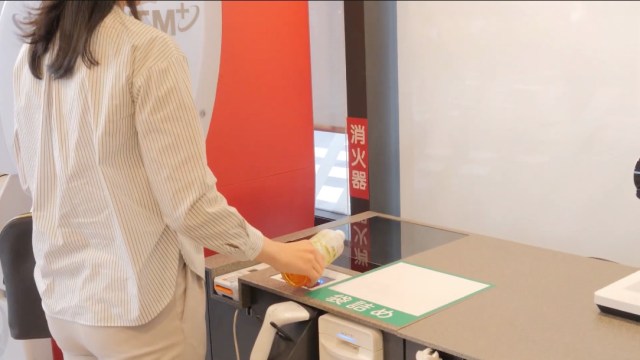
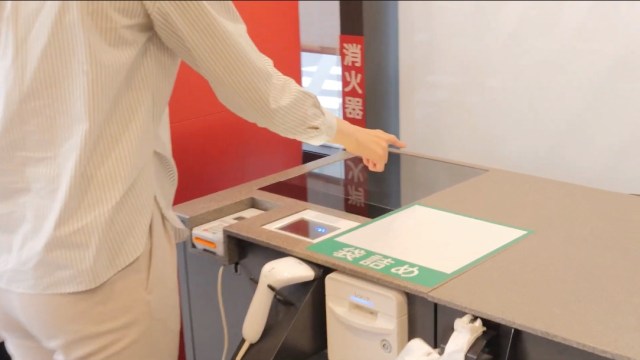
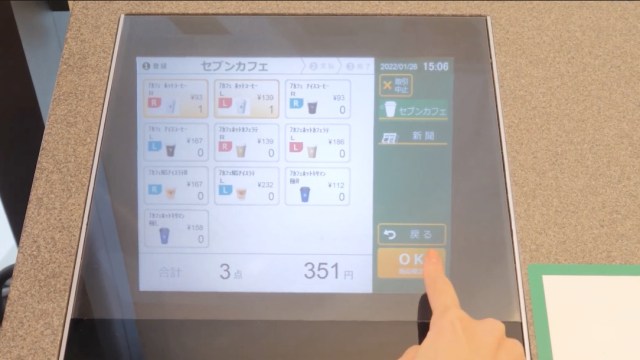
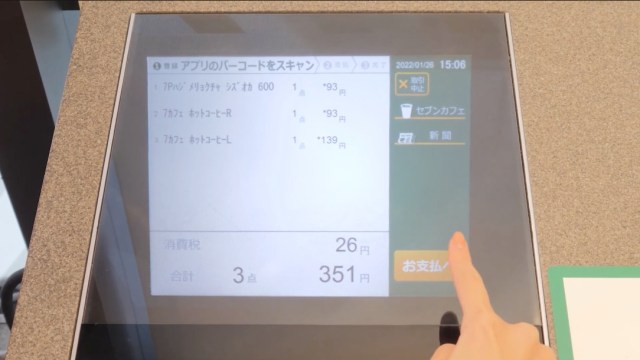
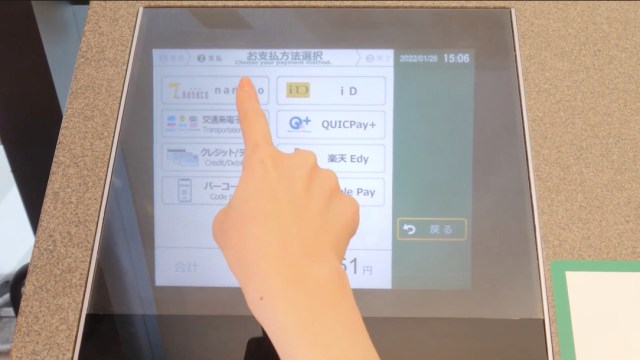
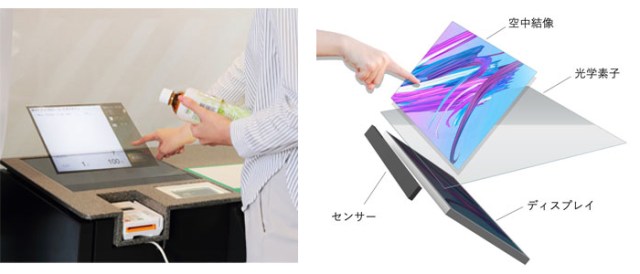
 How to use the new floating hologram registers at 7-Eleven
How to use the new floating hologram registers at 7-Eleven How to use Japanese convenience store Lawson’s self-checkout terminals
How to use Japanese convenience store Lawson’s self-checkout terminals Heroic Japanese convenience store owner saves foreigner from online scam artist
Heroic Japanese convenience store owner saves foreigner from online scam artist Japanese convenience store’s registers play Final Fantasy victory theme for special items 【Video】
Japanese convenience store’s registers play Final Fantasy victory theme for special items 【Video】 Japan Extreme Budget Travel! A trip from Tokyo to Izumo for just 30,000 yen [Part 2]
Japan Extreme Budget Travel! A trip from Tokyo to Izumo for just 30,000 yen [Part 2] Japanese restaurant chain serves Dragon Ball donuts and Senzu Beans this spring
Japanese restaurant chain serves Dragon Ball donuts and Senzu Beans this spring Which convenience store onigiri rice balls are the most popular? Survey reveals surprising results
Which convenience store onigiri rice balls are the most popular? Survey reveals surprising results Tokyo street sweets: The must-snack treats of Nakano’s Refutei
Tokyo street sweets: The must-snack treats of Nakano’s Refutei Japan has only one airport named after a samurai, so let’s check out Kochi Ryoma【Photos】
Japan has only one airport named after a samurai, so let’s check out Kochi Ryoma【Photos】 New interactive Pokémon attraction coming to Universal Studios Japan
New interactive Pokémon attraction coming to Universal Studios Japan Miss World Japan: The great-times-20-granddaughter of samurai lord One-Eyed Dragon
Miss World Japan: The great-times-20-granddaughter of samurai lord One-Eyed Dragon Foreign tourists in Japan will get free Shinkansen tickets to promote regional tourism
Foreign tourists in Japan will get free Shinkansen tickets to promote regional tourism How to get all-you-can eat doughnuts at Mister Donut for just 12 bucks!
How to get all-you-can eat doughnuts at Mister Donut for just 12 bucks! Say hello to Japan’s new stationmaster cat!【Video】
Say hello to Japan’s new stationmaster cat!【Video】 The 10 most annoying things foreign tourists do on Japanese trains, according to locals
The 10 most annoying things foreign tourists do on Japanese trains, according to locals Highest Starbucks in Japan set to open this spring in the Tokyo sky
Highest Starbucks in Japan set to open this spring in the Tokyo sky Tokyo Skytree turns pink for the cherry blossom season
Tokyo Skytree turns pink for the cherry blossom season Starbucks Japan releases new sakura goods and drinkware for cherry blossom season 2026
Starbucks Japan releases new sakura goods and drinkware for cherry blossom season 2026 Japan’s new “Cunte” contact lenses aren’t pronounced like you’re probably thinking they are
Japan’s new “Cunte” contact lenses aren’t pronounced like you’re probably thinking they are Shibuya Station’s Hachiko Gate and Yamanote Line stairway locations change next month
Shibuya Station’s Hachiko Gate and Yamanote Line stairway locations change next month Yakuzen ramen restaurant in Tokyo is very different to a yakuza ramen restaurant
Yakuzen ramen restaurant in Tokyo is very different to a yakuza ramen restaurant Starbucks Japan adds new sakura Frappuccino and cherry blossom drinks to the menu
Starbucks Japan adds new sakura Frappuccino and cherry blossom drinks to the menu Japan just had its first same-month foreign tourist decrease in four years
Japan just had its first same-month foreign tourist decrease in four years Burning through cash just to throw things away tops list of headaches when moving house in Japan
Burning through cash just to throw things away tops list of headaches when moving house in Japan Japan’s newest Shinkansen has no seats…or passengers [Video]
Japan’s newest Shinkansen has no seats…or passengers [Video] Foreigners accounting for over 80 percent of off-course skiers needing rescue in Japan’s Hokkaido
Foreigners accounting for over 80 percent of off-course skiers needing rescue in Japan’s Hokkaido Super-salty pizza sends six kids to the hospital in Japan, linguistics blamed
Super-salty pizza sends six kids to the hospital in Japan, linguistics blamed Starbucks Japan unveils new sakura Frappuccino for cherry blossom season 2026
Starbucks Japan unveils new sakura Frappuccino for cherry blossom season 2026 Take a trip to Japan’s Dododo Land, the most irritating place on Earth
Take a trip to Japan’s Dododo Land, the most irritating place on Earth Naruto and Converse team up for new line of shinobi sneakers[Photos]
Naruto and Converse team up for new line of shinobi sneakers[Photos] Is China’s don’t-go-to-Japan warning affecting the lines at a popular Tokyo gyukatsu restaurant?
Is China’s don’t-go-to-Japan warning affecting the lines at a popular Tokyo gyukatsu restaurant? Survey asks foreign tourists what bothered them in Japan, more than half gave same answer
Survey asks foreign tourists what bothered them in Japan, more than half gave same answer Japan’s human washing machines will go on sale to general public, demos to be held in Tokyo
Japan’s human washing machines will go on sale to general public, demos to be held in Tokyo Starbucks Japan releases new drinkware and goods for Valentine’s Day
Starbucks Japan releases new drinkware and goods for Valentine’s Day We deeply regret going into this tunnel on our walk in the mountains of Japan
We deeply regret going into this tunnel on our walk in the mountains of Japan Studio Ghibli releases Kodama forest spirits from Princess Mononoke to light up your home
Studio Ghibli releases Kodama forest spirits from Princess Mononoke to light up your home Major Japanese hotel chain says reservations via overseas booking sites may not be valid
Major Japanese hotel chain says reservations via overseas booking sites may not be valid Put sesame oil in your coffee? Japanese maker says it’s the best way to start your day【Taste test】
Put sesame oil in your coffee? Japanese maker says it’s the best way to start your day【Taste test】 No more using real katana for tourism activities, Japan’s National Police Agency says
No more using real katana for tourism activities, Japan’s National Police Agency says What makes this new Japanese convenience store chain better than 7-Eleven?
What makes this new Japanese convenience store chain better than 7-Eleven?